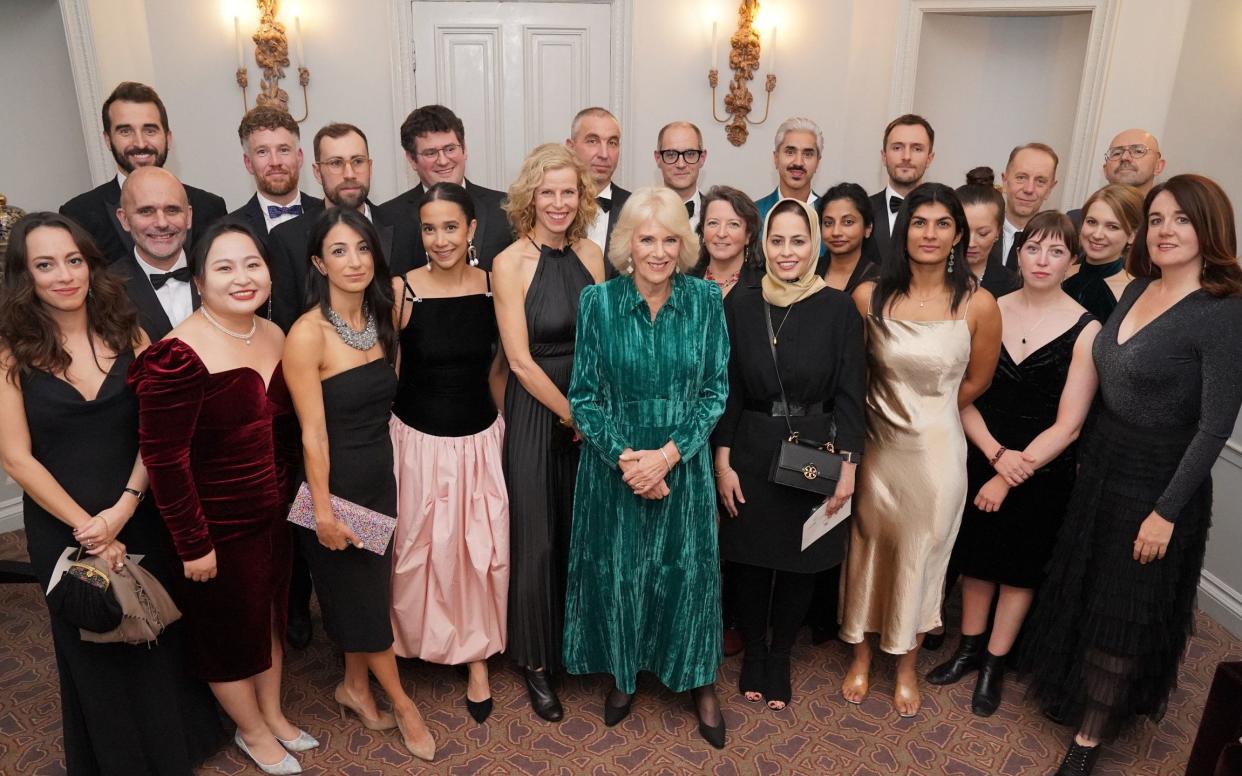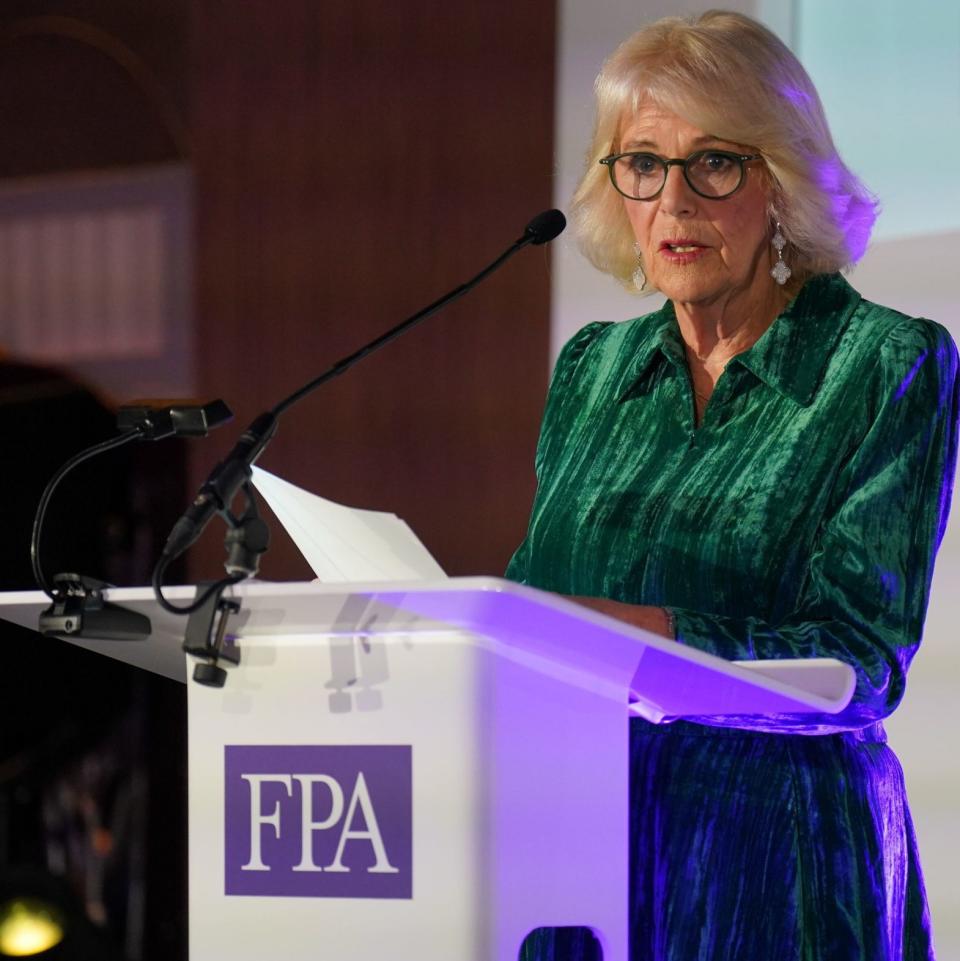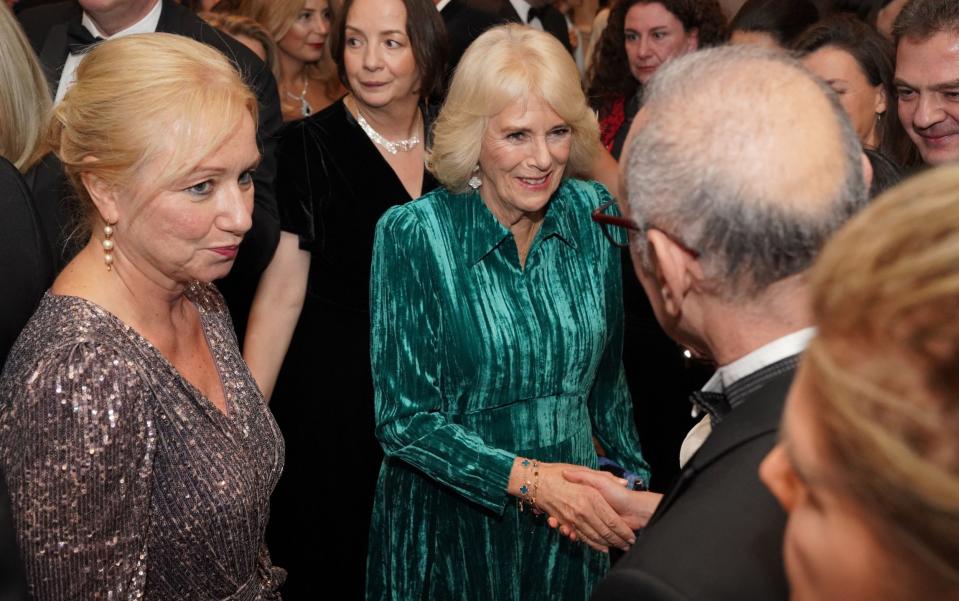Queen condemns abuse of female journalists and online disinformation

The Queen has condemned the abuse of female journalists and online disinformation during a speech at the annual Foreign Press Association Awards.
In the keynote address, Queen Camilla said women were among the “bravest reporters of all” as she spoke of how “tough” the profession can be.
She said: “From trailblazers like Martha Gelhorn and Christiane Amanpour, to those such as Marie Colvin and Daphne Caruana Galizia, who have so tragically paid with their lives, their courage was matched only by their conviction that the truth matters.
“Perhaps this has never been more evident than in our digital age, where disinformation runs rife and where female journalists are increasingly targeted on social media.”
The Queen, 76, was speaking at the Sheraton Grand London Park Lane hotel for the 135-year celebration of the Foreign Press Association (FPA), the oldest and largest association of foreign correspondents in the world. The King is also an honorary member.

She was welcomed to the annual awards ceremony on Monday evening by Deborah Bonetti, the organisation’s director, and Dagmar Seeland, its president, as she was presented with her own honorary membership.
During her speech, Camilla quipped that she had been “the subject of one or two stories myself over the years” as she said she understood the responsibilities of the profession.
The Royal also used the occasion to pay tribute to the journalists who are “now risking their lives” reporting from the conflicts in Ukraine and the Middle East “in these most difficult of times”.
It comes as the Committee to Protect Journalists reported on Monday that 48 journalists and media workers had been killed in the Israel-Hamas conflict since the Oct 7 attack on southern Israel by Hamas and the subsequent Israeli offensive in Gaza.
Queen Camilla hailed the FPA’s efforts to “promote and protect” women throughout its long history, and noted the organisation’s efforts to provide specialised training for women to deal with “disruptive and abusive behaviour” from members of the public.
Last year, a global study detailed the extent of online abuse and harassment faced by women in the industry, calling it a “crisis” that had led to female reporters being threatened and murdered.
The three-year survey by the International Centre for Journalists and the University of Sheffield, involving more than 1,000 women from 15 countries, found the majority had suffered from online violence.

In her speech, the Queen also thanked journalists for covering and raising awareness of global domestic and sexual abuse against women, a cause that she has made one of her key campaigning issues.
“The FPA grew out of the need to reveal and condemn violence against women… and this remains a key part of journalism today,” she said. “You have the ability to break the corrosive silence that frequently surrounds abuse.
“You bring into the open the voices of victims, you break taboos, you shine a light on these heinous crimes and you guide the public on what they can do to help.”
The Queen also used her speech to highlight that rape and sexual abuse “continue to be a pervasive and all-too-often hidden feature of conflict zones the world over.”
She also reiterated her staunch support of “true freedom of expression” as she initially pledged in a speech at the London Press Club Awards in 2011, when she was Duchess of Cornwall.
Despite the countless stories about her over decades of coverage, the Queen again described freedom of expression as being “at the heart of our democratic system” and said she was “following in the footsteps” of her husband, King Charles, who also made a keynote speech at the FPA annual awards ceremony as Prince of Wales in 2008.
The FPA was founded in 1888 to help journalists from across the globe report on events in Britain.


